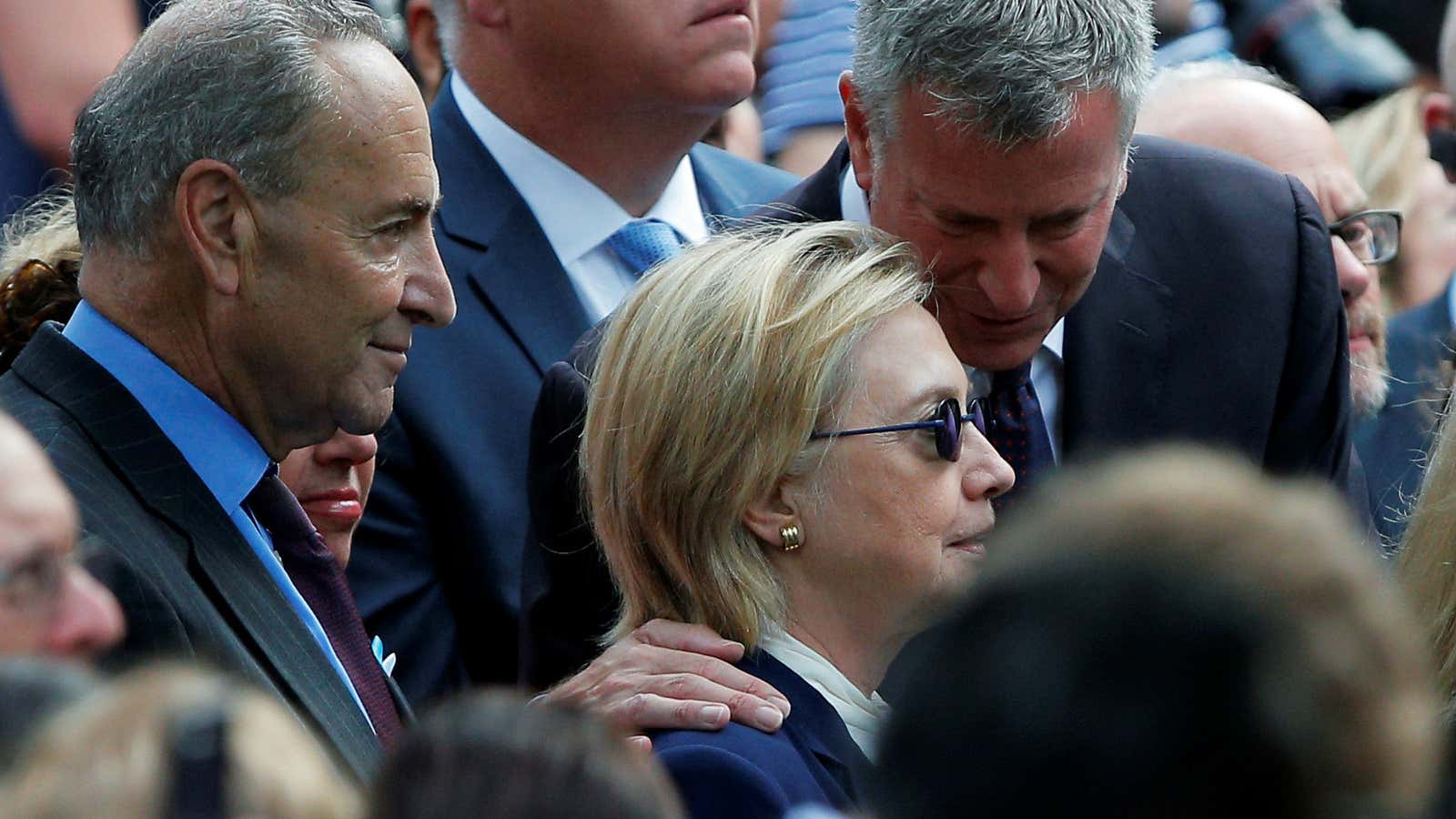When Hillary Clinton visibly stumbled and fell at a 9/11 memorial event, the press went wild, calling it a “scare” that “shakes up the race” for the presidency of the United States. After initially saying Clinton had merely been “overheated and dehydrated” at the event, her team soon confirmed that she had been diagnosed with pneumonia and is being treated with antibiotics.
There’s a lot going on here that’s specific to the Clinton-Trump campaign: There are signs that the race may be tightening in Donald Trump’s favor, and the pressure on Clinton is arguably at a peak. But the episode gets to something much bigger: the paradoxical way we respond to visibly vulnerable leaders. We often wish our leaders could show greater vulnerability—precisely defined, to demonstrate a greater capacity to need support—but whenever they do, we are quick to judge them harshly.
The ability to express vulnerability makes leaders stronger, helps them create better connections with their followers, and can benefit entire organizations. In her book about the power of vulnerability, US scholar Brené Brown tells us how “vulnerability sounds like truth and feels like courage. Truth and courage aren’t always comfortable, but they are never weakness.”
In other words, the capacity to show one’s humanity, with all its flaws and weaknesses, is a well-known leadership strength. It’s a crucial way to form better human connections with followers, voters, employees, and so on.
On the other hand, vulnerability seems to have a dark side. We are remarkably quick to negatively judge leaders who show their human frailties; strength and invulnerability are still held up as core qualities of heroic leaders, who must be fit to unwaveringly bear the load of awesome responsibilities and gruelling duties.
The drawback of vulnerability is demonstrated by the entire rhetoric surrounding Clinton’s health: Assorted conspiracy theories have long circulated, some propagated by Trump himself. The continuous scrutiny of her age as a sign of frailty, and therefore by implication unfitness, have also been a feature of the campaign coverage.
Reactions like these to leaders’ vulnerabilities tell us less about the leaders themselves and more about our own biases.
Our ideas about leadership are still very much connected to images of strong, young male heroes. As soon as we are confronted with older leaders, our bias kicks in and the negative judgement starts. More disconcertingly, our image of leaders is still defined by masculine traits—and of course, vulnerability is still associated with femininity.
The reaction to Clinton’s stumble is a reminder that she’s up against two insidious biases, both of which are immediately inflamed by any indication that a less-than-youthful female leader is in the slightest bit vulnerable.
So if we really want our leaders to be more authentic and show us their true selves, we have to confront and change our stereotypical idea of what leadership means. We must become more inclusive in our attitudes about who can really be fit to lead us. We must accept that leaders are not just strong young men, but that they come in every shape and form.
As a woman in late middle age, competing in a once entirely male field, Clinton knows all too well the price of showing vulnerability. In her two-and-a-half decades in international public life, Clinton has always been under great pressure to show a strong image. At more than one make-or-break moment in her dogged 2008 campaign against Barack Obama, she appeared to “let her guard down“; more often than not, those moments were interpreted as “valedictory, almost elegiac” rather than credited as demonstrations of real leadership qualities.
No surprise then that when she emerged from her daughter’s front door a few hours after her stumble on Sept. 11, Clinton remained stoic. All she had to say to the assembled press was: “I’m feeling great. It’s a beautiful day in New York!”
